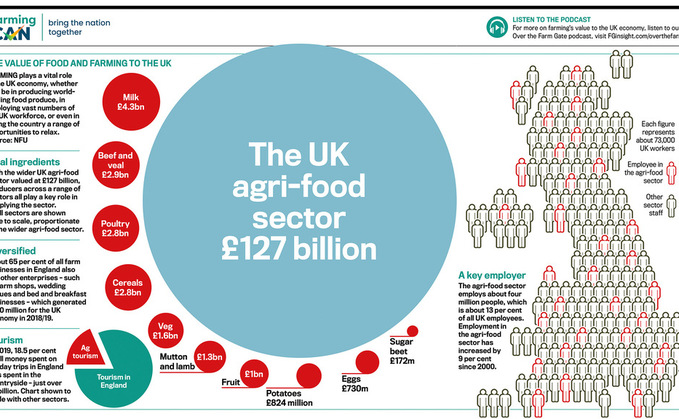
As well as being the bedrock of rural life, British farming's contribution to the national economy topped £9.4 billion last year, with the agri-food sector worth £127bn. Farmers Guardian drills into the...

As well as being the bedrock of rural life, British farming's contribution to the national economy topped £9.4 billion last year, with the agri-food sector worth £127bn. Farmers Guardian drills into the...